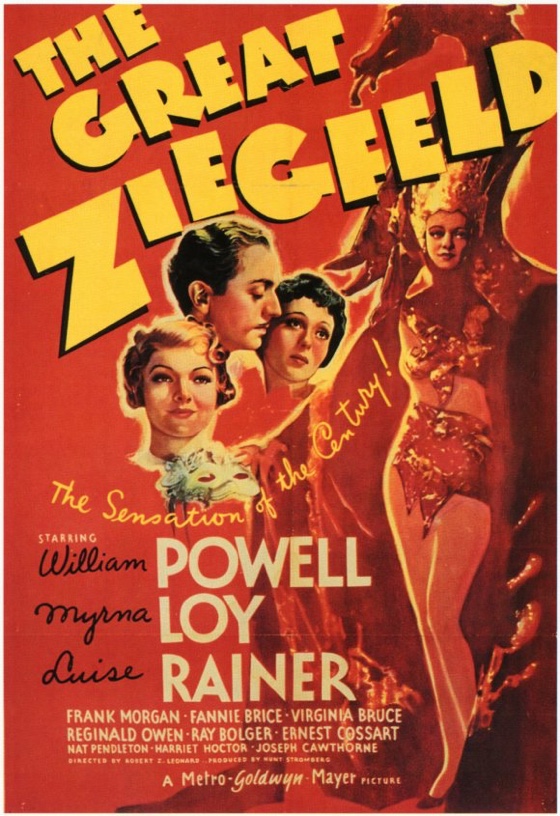The Man Who Loved Women
Get past the set pieces that date the movie and make it twice as long as it might be, and The Great Ziegfeld — a biopic of theatrical impresario Florenz Ziegfeld Jr. — is a moving story of how the weaknesses and obsessions that ironically made one man a powerful entertainment mogul inevitably brought about his downfall.
The film opens with Ziegfeld’s (William Powell) strongman attraction on the midway at the 1893 Chicago World Fair — a show that is failing until Ziegfeld turns it around with the discovery that will send him to the top: Sex appeal sells. Instead of performing feats of strength, Ziegfeld has his strongman flex his muscles for the swooning ladies. The traveling show is a sensation nationwide, and Ziegfeld is on his way.
Ziegfeld sets himself up on Broadway, producing revues — “The Ziegfeld Follies” — that combine beautiful, glamorous chorus girls and personalities like Fannie Brice and Will Rogers in diverting and entertaining shows. But Ziegfeld also lives extravagantly, sending telegrams to people within shouting distance (the contemporary equivalent might be using a cell phone to call the next room) and gambling away his profits. His constant money woes make him bold and audacious — he woos new acts to his fold with nothing but promises of lavish publicity and is forever wriggling out of financial obligations in clever but risky ways. His life and business run in a never-ending cycle: having affairs with and marrying with impressionable young things he promises to turn into stars, and does; producing wildly successful shows that only feed his bad money habits; and begging for startup money for the next big show from rival producers. His reign of success is brought to a halt only when his big stars like Rogers are lured to Hollywood and the crashing stock market on Black Monday brings to an end the biggest of his gambles.
Ziegfeld, while not the first to make money off the display of beautiful women, surely was the first to make so much of it. His Follies took the conventions of burlesque and made respectable variety shows full of singers, dancers, and nearly naked chorus girls — he’s directly to blame for the Osmonds, Sonny & Cher, and much of what goes on on Las Vegas stages.
And yet there’s at least one thing to thank him for: the theater he built and named for himself in New York City, long since converted to a movie theater, is the hands-down best place to catch a flick in Manhattan.
amended 01.27.99:
Doh! I’m informed that the current Ziegfeld Theater has always been a movie theater. Whatever… It’s still the best movie house in New York.
Oscars Outstanding Production 1936
unforgettable movie moment:
Ziegfeld’s explanation to a lovestruck little girl how he loves all beautiful women the way some people love all beautiful paintings.
previous Best Picture:
1935: Mutiny on the Bounty
next Best Picture:
1937: The Life of Emile Zola
















